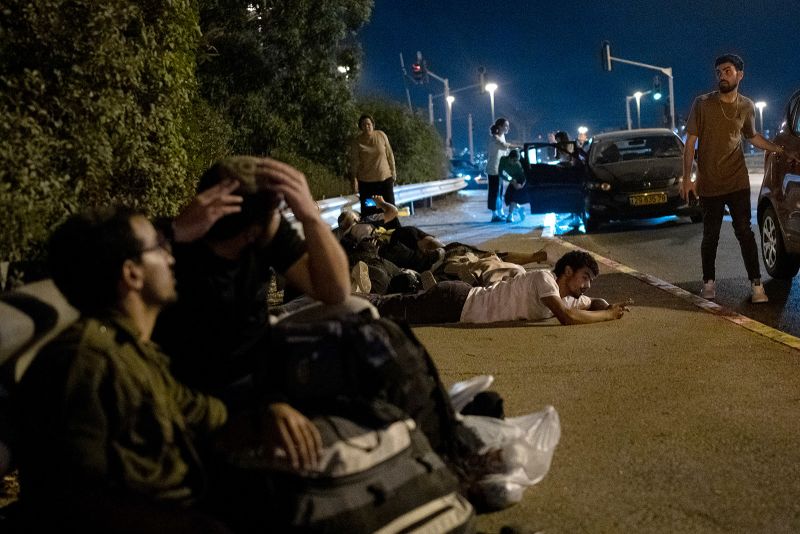Over the years, Israeli-Iranian relations have been fraught with deep-seated tensions, mainly due to Iran’s alleged nuclear ambitions and Israel’s role as a U.S. ally. Now, the tensions between the two nations have once again come into focus due to Iran’s missile barrage. This situation poses a serious threat to the already fragile Middle East peace processes. Anticipating a response, we can only speculate on how Israel might choose to act, based on historical patterns and current dynamics.
Key among these dynamics is the Israeli defense system known as the Iron Dome. Designed to intercept and destroy short-range rockets and artillery shells, the Iron Dome has successfully neutralized thousands of threats since its implementation. However, missile barrages from Iran pose a noticeably larger threat as the range of Iran’s rockets outstrips those which the Iron Dome is designed to combat. As such, Israel will likely strengthen its defense systems, potentially look towards its allies for support, and employ its intelligence services to gain knowledge of Iran’s future moves.
Israel might respond by leveraging its superior technological capabilities and defense systems. An example of this prowess is the Arrow 3 anti-ballistic missile system co-developed by Israel and the United States. This system is capable of intercepting and destroying incoming missiles outside the Earth’s atmosphere, making it possible to destroy Iranian missiles at a distance. Future advancements to this technology could further enhance Israel’s defense against any Iranian missile threats.
Furthermore, intelligence will likely play a significant role in Israel’s response. Israel’s intelligence community, including Mossad and the Israeli Defense Intelligence, is recognized globally for its proficiency. These agencies could provide warnings and intercept vital information that could shed light on Iran’s future moves. This intelligence could aid in planning defensive measures, decommissioning threats, and possibly launching pre-emptive strikes against impending threats. Crusading on cyber warfare could also be a likely response, given Israel’s known capabilities in this field.
In addition, Israel will likely seek collaborations with its many allies, notably the United States. The long-standing relationship between these nations has proven pivotal on multiple occasions, most notably in the U.S. support for Israel’s defense systems. This collaboration could see increased support towards the advancement of Israeli defense technologies, intelligence sharing, and coordinated strategic responses.
Another crucial aspect of Israel’s likely response is diplomatic pressure on Iran. Since Iran has long been accused of destabilizing the region and supporting groups categorized as terrorists by much of the international community, it remains somewhat isolated. Israel, backed by Western allies, could use this to their advantage. They are likely to continue diplomatic efforts to appeal to international bodies such as the United Nations and International Atomic Energy Agency to pressure Iran into halting its missile barrages.
Israel’s response also hinges on internal politics and public sentiment. With the Israeli general public’s safety at risk, any response must take into account the feelings of fear, uncertainty, and desire for safety among its citizens. Bolstering defense systems and ensuring effective retaliatory measures represents assurance to the public that their administration is dedicated to their safety and security.
In conclusion, in the face of Iran’s missile barrage, Israel will likely leverage their advanced technological capabilities, intelligence infrastructure, mutual collaboration with allies particularly the United States, and diplomatic instrumentalities. However, the complexity of the situation and the array of unknown variables necessitates a measured, multi-faceted response that will assure its citizens, maintain regional stability, and deter further adventurism from Iran.




